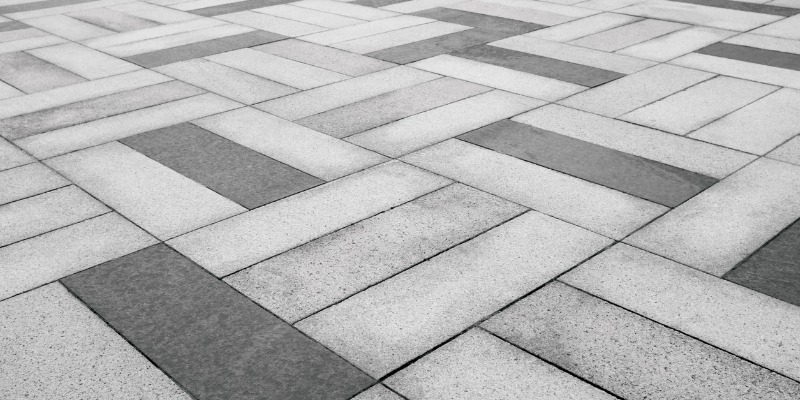Sealing Interlocking Pavers and Patio Stones: A Complete Guide
Interlocking pavers and patio stones continue to be a top choice for homeowners looking to add texture and beauty to their hardscaping. However, to get the most out of your pavers and patio stones you might want to consider using a sealer to protect them and help them maintain their beauty for years to come. Here is our complete guide explaining how to seal patio pavers to make the job easier.
Why Seal Interlocking Pavers and Patio Stones?
Sealers offer many benefits including:
- Limits erosion inside joints
- Repels stains
- Prevents dirt, insects, and harmful debris from damaging the pavers or stone
- Enhances colour of concrete and natural stone
It is well worth the effort to help protect your pavers and patio stones while also helping them maintain their appearance.
What Is The Best Sealer For Pavers?
We recommend a professional grade sealer for your interlocking pavers. There are two main types of sealer to choose from; water based, and solvent based. Water based sealers are penetrating sealers that will penetrate the porous areas of the paver providing protection through the surface of the paver. Solvent based sealers are film forming which create an acrylic based barrier over the surface of your pavers preventing stains from penetrating through. It is important to use the correct type of sealer for the correct stone:
- Concrete Pavers – solvent based for dry-cast stone and water based for wet-cast. Solvent based is not to be used on wet cast pavers as it will pool on the surface and could make the finish of the stone slippery.
- Natural Stone – ensure it is a sealer meant for the type of stone (limestone, granite, sandstone, etc…)
When To Seal Patio Pavers?
This depends on the type of sealer used. For water-based sealers, it would be every two to three years, while acrylic sealers need to be applied every three to five years.
Do you have questions about sealing interlocking pavers? Contact our experts at Grand River Natural Stone today.
How Long To Wait Before Sealing Pavers
Pavers can only be sealed after the “efflorescence” evaporates. Concrete-based stones and pavers contain a salt which can appear as a white residue on the surface of the stone after installation. This process could take 30 days up to a year to complete after the stone is manufactured. It is generally recommended to wait 30-90 days after installing pavers before sealing, to see if any efflo comes to the surface. If you apply sealant too soon, the salt is sealed into the stone creating a dusty look on the pavers while also preventing a proper seal. It is recommended to clean your pavers with efflorescence cleaner before applying sealer to your stone.
How to Seal Concrete Patio Pavers
To seal patio pavers follow these steps:
- Choose a moderately cool and dry day to avoid damaging the sealant in extreme heat.
- Make sure your pavers are clean, free of debris, and that any stains or grease have been removed using the appropriate cleaners.
- Use an efflorescence cleaner to clean the entire surface area.
- You’ll need a low-pressure sprayer to apply the sealer, and a foam roller to ensure even coating.
- Working in 50ft square areas, apply a single layer of sealant as evenly as possible.
- Allow the sealant to set for no longer than five minutes so it is absorbed into the pavers before rolling. Do not allow it to pool, as too thick a coat will cause clouding.
- Back-roll over the excess sealer to remove it.
- Keep protected from rain for at least 24 hours
Once finished, do not attempt to add an additional coat once the sealant dries. This can cause delamination that negatively impacts your pavers’ lifespan.
How To Seal Natural Stone
If you have a natural stone patio or walkways, you can follow these steps to apply sealer:
- Choose a hot sunny day to apply the sealant and when sun is forecast for at least two days.
- Wash away dust and debris. Near your bbq, you may have to scrub oil and grease stains with a specialized cleaner geared for natural stone.
- Apply the sealer with your roller in long, even strokes in a thick layer, trying to only hit each stone once.
- You do not want to apply so much that the stone allows the sealer to pool.
- Allow the stones to sit for enough time for the sealer to fully absorb. Multiple coats may be needed on more porous stones.
- Protect from rain for at least 24 hours.
These steps will provide an even coat and finish for your stone.
How To Seal Concrete Stepping Stones
For concrete stepping stones follow these steps:
- Choose a sunny day with sun forecast for at least 24 hours.
- Remove dust and debris as well as weeds.
- Use a low-pressure sprayer to apply the sealer making sure you cover it completely.
- With a foam roller spread the sealer into the joints.
- Remove excess sealer and allow it to dry for at least two or three hours and let it set for 24 hours before walking on it.
These steps will ensure your concrete stepping stones are sealed.
Are you looking for help sealing interlocking pavers and patio stones? Contact our experts at Grand River Natural Stone today.
